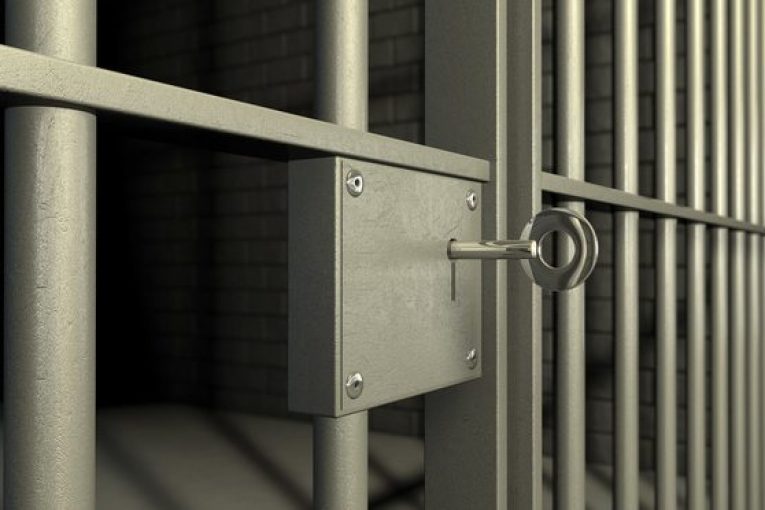

By Nancy Martinez
CALIFORNIA- A three-judge court denied the emergency motion to reduce prison populations to ensure that mentally and medically ill individuals receive proper health precautions as COVID-19 finds its way into prison populations.
The three-judge court of the United States District Court of California denied the emergency motion to modify a prison population reduction derived from the COVID-19 pandemic. However, the Eastern District Court of California mandated orders to enforce that the defendants create a specific plan that ensures the safety of incarcerated individuals who may require mental and medical health treatments.
As the COVID-19 pandemic anguishes communities all over the world, the incarcerated community in the United States faces an imminent threat from the lack of health preventative measures put in place to limit the contractions of COVID-19. Minority groups that require medical or mental health care within the incarcerated community may be at an even higher risk due to the direct contact that is required to treat individuals and the difficulty in maintaining physical distancing.
On April 4, 2020, the three-judge court of the United States District Court representing the Northern and Eastern District Courts of California, denied the Coleman and Plata plaintiff’s emergency motion to modify a population reduction order from 2009 “without prejudice to the right of each plaintiff class to seek relief in a procedurally appropriate forum.”
This modification would allow physical distancing measures to be improved by reducing the overall prison populations all in all to minimize the effects of COVID-19 and to protect prison populations.
In 2009, a population reduction order was filed on behalf of Coleman and Plata class individuals to reduce the California prison population to 137.5 percent of the population capacity in order to allow  incarcerated individuals to receive adequate medical and mental health treatment.
incarcerated individuals to receive adequate medical and mental health treatment.
Coleman class members are individuals with serious mental illnesses that require frequent mental health treatment. Plata class members are individuals that require serious medical treatment.
Currently, the defendants, Newsom et al, argued that the sought emergency modification seeks an entirely new prison release order, rather than a modification, to the 2009 order of a 137.5 percent population cap. This would then result in the denial of the sought modification.
In regard to the COVID-19 pandemic, the courts decided to decline the modification of the 2009 ruling because the issues that were addressed in 2009 were issues that were present in California prisons as a result of inadequate medical help available to individuals. However, the District Court has found that COVID-19 does not fit the criteria because it has raised issues all over the nation. The issues of high prison populations are not just present in California because of unique prison “deficiencies,” they are present in prisons all over the country.
The Court has also declined the emergency motion because the order implemented in 2009 was not designed to address an unexpected pandemic.
In addition, the Court took into consideration the executive orders Governor Newsom directed on March 24 that are expected to result in the release of 6,500 individuals from prisons of California.
Despite declining the modification order, the Court offered other options of relief that include suggestions to the plaintiffs to seek individual relief in their corresponding courts, the Plata and Coleman courts. Single-judge courts may order further steps in order to remedy alleged constitutional violations.
On April 6, an additional order was executed from the Eastern District of California in which plaintiffs and defendants were ordered to submit specialized briefs by April 8.
These briefs were to address the constitutional minima required for physical safety for Coleman class members with mental illness and the required steps that will ensure defendants are delivering adequate mental health care to the plaintiff classes.
Statistics on the Colemen class population, descriptions of housing spaces that will allow physical distancing, and medical history details of all Coleman class members were to be provided by the defendants no later than April 7.
A specific plan to achieve adequate physical distancing of Coleman class members, whether it be including temporary relocations from housing spaces that do not allow for the six feet mandated physical distancing, must have also been included in these reports.
A final joint report of the two parties was to be submitted by April 9. This report has not been published as of April 10, 2020.
The reports were ordered as a result of the increase of inmates testing positive for COVID-19 — a total of 17 incarcerated individuals in California were last reported in the Eastern District of California court opinion. Fifty-three correctional staff have additionally self-reported as having the virus.
The denial of the emergency modification of the population reduction plan of 2009 must increase the urgency to aid incarcerated populations. The state government must, at minimum, create a specific plan to ensure the safety of the entire prison population, including the implementation of higher safety precautions for individuals who identify as members of Coleman and Plata classes.
To sign up for our new newsletter – Everyday Injustice – https://tinyurl.com/yyultcf9

https://news.yahoo.com/florida-inmate-freed-over-covid-045745009.html